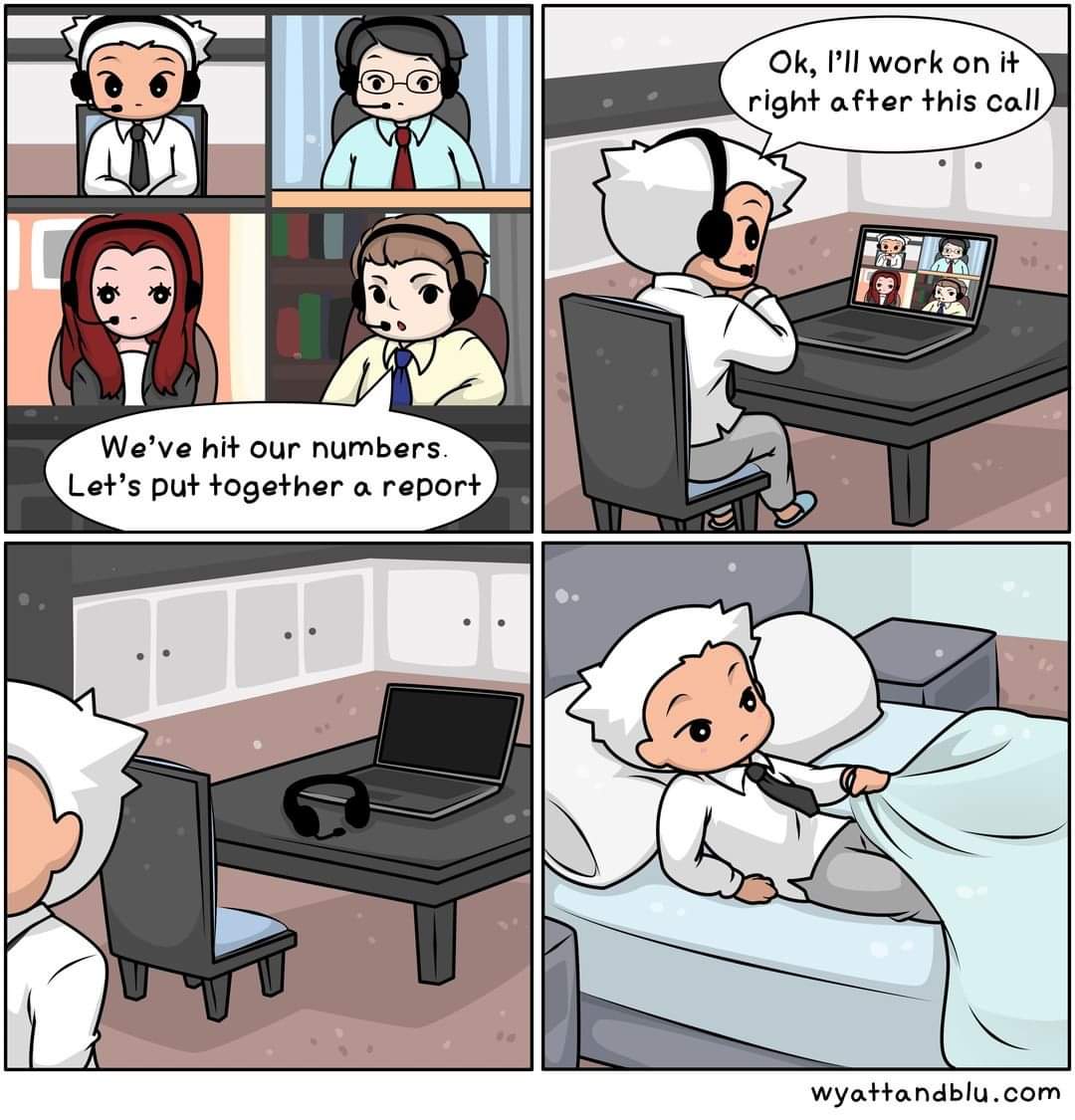this post was submitted on 21 Sep 2023
1202 points (95.9% liked)
Comic Strips
13138 readers
3311 users here now
Comic Strips is a community for those who love comic stories.
The rules are simple:
- The post can be a single image, an image gallery, or a link to a specific comic hosted on another site (the author's website, for instance).
- The comic must be a complete story.
- If it is an external link, it must be to a specific story, not to the root of the site.
- You may post comics from others or your own.
- If you are posting a comic of your own, a maximum of one per week is allowed (I know, your comics are great, but this rule helps avoid spam).
- The comic can be in any language, but if it's not in English, OP must include an English translation in the post's 'body' field (note: you don't need to select a specific language when posting a comic).
- Politeness.
- Adult content is not allowed. This community aims to be fun for people of all ages.
Web of links
- [email protected]: "I use Arch btw"
- [email protected]: memes (you don't say!)
founded 2 years ago
MODERATORS
you are viewing a single comment's thread
view the rest of the comments
view the rest of the comments

Do you have figures for that?
If something consumes 8w of power rather than 60w that's a 52w energy reduction.
According to this site 1kw produces 0.94kg of CO2 if a coal power station is used. https://slightlyunconventional.com/co2-per-kwh-of-electricity/
What percentage of power comes from coal globally varies massively, but let's say 30% average as it's probably more https://ourworldindata.org/grapher/share-electricity-coal
Around 7.5 billion lightbulbs are sold in the USA alone. https://lightbulbatoz.com/articles/how-many-light-bulbs-are-sold-each-year/
So let's make a conservative estimate of 30 billion new bulbs per year globally.
Gives a global annual reduction in co2 out put directly from lighting at 1kw÷54÷0.94kg×3000000000÷1000÷30%= about 17 metric killotone.
Shit yeah, drop in the ocean. That's cumulative though, so 17 last year, 17 this year, 17 next year.
Also led bulbs should last a minimum of 12 times longer than incandescent, so unless they use more than 12 times the co2 to produce there's going significant savings there.
Big numbers, but tiny in comparison to transport, which itself is small compared to industry
As I said at the actual calculation, it was shockingly small. The biggest part of the savings would come from the bulbs lasting at least 12 times longer (thus less embedded emissions from production and transportation).
Valid, but let's not move the goal posts; new light bulbs were specifically questioned and, thanks to someone's willingness to do some research and number crunching, light bulbs were specifically answered.
Let's at least give thanks before we vault off to the next, existentially exhausting, item on the list of climate change issues.
It's not like we don't have time. Right xuys? Right?
Keep in mind also that the energy you save was previously heating your house. so depending on where you live, how you heat your house and how well your house is isolated you could be saving close to nothing
I think to be honest that would very much be cancelled out by the fact it heats your house. So depending on where you live you may need to use power to apply additional cooling to remove that heat.